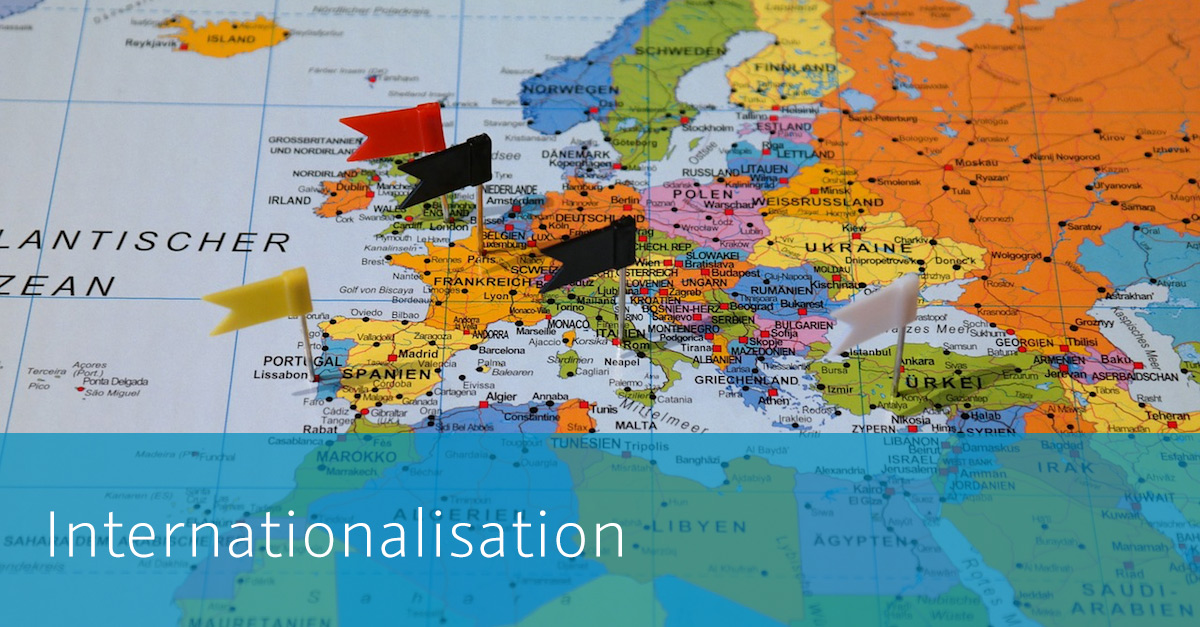from
E-Commerce is booming! And for many consumers, buying products online has become a normal part of life. It's getting easier and easier for customers to buy products online and to browse through stores in other countries. Borders are beginning to play less of a role. Oftentimes, it's hard for customers to even tell which country an item was shipped from. It's only logical that international online purchases are becoming more common. Nowadays, one of every seven online purchases is a cross-border transaction. In general, customers are more interested in how quickly they can receive an item than from where the item was shipped. In short, sellers can greatly benefit from expanding their delivery range and selling in other countries.

Online marketplaces - the easy way to start selling items internationally
Internationalisation is very rewarding, but also very time-consuming. One way sellers can reduce their risk is by focusing exclusively on multi-channel when they're just getting started. Marketplaces are a good way for sellers to test the waters and begin gaining experience in their target countries.
When you're just starting out, consider selling on marketplaces with a relatively narrow product range. This will help keep tasks like localisation and SEO modifications to a minimum. It will also give you guidelines for presenting roducts in other countries and it will give you time to plan your future endeavours. You may also want to consider working with one or more service providers, who already know their way around the marketplaces. This will reduce your own workload during the initial trial phase and you will benefit from the service provider's knowledge of the target market. Typically, sellers who team up with well-known marketplaces are more likely to be welcomed with open arms. This is because customers won't get the feeling they're buying from someone unknown or that they're buying from abroad. Furthermore, sellers are able to improve their own visibility by using marketplace-specific SEO strategies. And they can do it all without drastically increasing their yearly advertising budget. In short, marketplaces are a good way for sellers to try their hand at international sales. Without making a big investment, sellers can see how their business would do in real-life conditions. Then they can continue expanding based on what they've already learned about doing business abroad, expected profit margins and local sales channels.
What you'll need from an ERP system
Your ERP system should help - not hinder - you when selling items internationally. Not only will sellers need to save product texts and descriptions in multiple languages, but they'll also need to sell their products on international marketplaces and deal with international fulfilment and billing processes. All of these day-to-day tasks will need to comply with international law, while still being as efficient as possible. That's only going to work if your ERP system makes the grade.
Multilingualism is a must for any ERP system that sells items across borders. If you want to ship items abroad, then you'll need to print delivery notes, invoices, etc. in your customer's own language. Specifically, your ERP software should be able to handle Unicode, so that it correctly interprets the special characters that are used in other languages. PIM (Product Information Management) systems allow sellers to manage product data in several different languages. Such systems are highly advantageous when using marketplaces to sell internationally. Ideally, sellers should be able to save a different producttext for every marketplace and country that they sell on.
Many ERP systems come equipped with interfaces to one or more translation agencies. Sellers can then use these agencies to receive high-quality translations of their product information. And since the interfaces stem directly from the seller's very own ERP system, the workload is kept to a minimum.
When in Rome, do as the Romans do. Or at least, pay with the same currency as they do. When choosing the right ERP system, look for one that can handle multiple currencies. Systems with integrated cross-border fulfilment & payment partners are at a clear advantage if they have an interface, which automatically transmits data back and forth.
When choosing a system, consider how many interfaces it has to international marketplaces. You'll want to make sure the ERP system automatically transmits data and communicates with the markets. You'll also want to make sure that it will be possible to manage all of your orders in one central location - regardless which platform the sale was actually made on. This will prevent you from constantly having to check stock levels and data on each platform individually.
Of course, this isn't a complete list of everything a good ERP system can bring to the table. Instead, this list helps you begin thinking about what it takes to sell in other countries and how an ERP system can help you along the way.